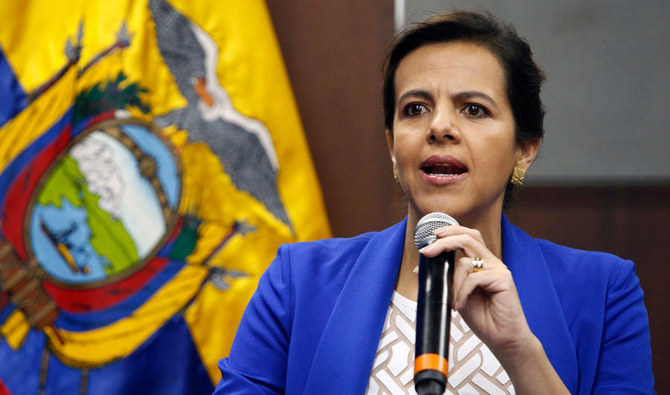QUITO/LONDON: A senior Ecuadorian official says a Swedish software developer living in Quito and who is allegedly close to Wikileaks founder Julian Assange has been arrested as authorities attempt to dismantle a blackmail ring that in recent days had threatened to retaliate against President Lenin Moreno.
The official said Ola Bini was arrested Thursday at Quito’s airport as he was preparing to board a flight for Japan.
The official spoke on the condition of anonymity and didn’t provide any additional details about Bini.
On a blog, a Swedish man by the same name describes himself as a software developer working in Quito for the Center for Digital Autonomy, a group based in Ecuador and Spain focused on privacy, security and cryptography issues. It makes no mention of any affiliation with Wikileaks.
On Twitter earlier Thursday, Bini called claims by the Interior Minister that Russian hackers and someone close to Wikileaks were working inside Ecuador “very worrisome” news. “This seems like a witch hunt to me,” Bini wrote.
The arrest came after British police dragged Assange out of Ecuador’s embassy when his seven-year asylum was revoked.
Aussie PM says not intervening
Meanwhile, Australia’s prime minister has ruled out intervention in a potential US extradition of Australian citizen Julian Assange on a charge of computer intrusion conspiracy.
Prime Minister Scott Morrison told Australian Broadcasting Corp. the charge is a “matter for the United States” and has nothing to do with Australia.
Morrison says Assange is receiving standard consular assistance offered to Australians in trouble in other countries.
Former Ecuadorian President Rafael Correa, on the other hand, criticized what he called a “double standard” by Western media and governments who he says have been quick to condemn Assange for publishing sensitive information about US national security interests.
Correa granted Assange asylum in 2012. In an interview with The Associated Press, he was harshly critical of his successor’s decision to expel the Wikileaks founder from Ecuador’s embassy in London.
Ecuador’s former president said that “although Julian Assange denounced war crimes, he’s only the person supplying the information.”
Correa said “It’s the New York Times, the Guardian and El Pais publishing it. Why aren’t those journalists and media owners thrown in jail?“
British police on Thursday hauled a bearded and shouting Assange from the Ecuadorian Embassy where he was holed up for nearly seven years, and the US charged the WikiLeaks founder with conspiring to obtain government secrets.




























